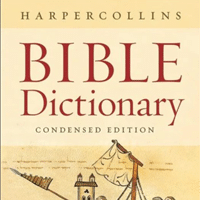The act of petitioning, praising, giving thanks, or confessing to God; it is expressed by several different words in the Bible. Prayer can be individual or corporate, audible or silent. It is conditioned by the biblical understanding of God as a personal being who hears prayers (1Kgs 9:3; Ps 34:15; Ps 65:2; Matt 7:11; 1John 5:15). The earliest instances of prayer in the OT are conversations between persons and God (Gen 3:9-12; Gen 15:1-6; Exod 3:1-4:17). It is said that God spoke to Moses “face to face, as one speaks to a friend” (Exod 33:11). Kings (1Sam 23:2-4; 1Kgs 3:5-14) and prophets (1Sam 3:4-9; Isa 6:1-13; Jer 1:4-19) are portrayed as conversation partners with God. The forms of prayer in the OT include petitions for guidance (Gen 24:12-14; Num 11:11-15; 1Kgs 3:5-14), requests for divine help (Gen 32:11; 1Kgs 8:22-53; Ps 31:15; Prov 30:8), intercessions (Gen 18:22-32; Exod 5:22-23; Exod 32:11-13; 2Sam 12:16-17; Amos 7:1-6; Ezek 9:8; Ezek 11:13), praise and thanksgiving (Ps 100:4-5; Ps 108:3-4; Ps 145-150:3), and confession (Exod 32:31-32; Judg 10:10; 2Sam 24:17; Ps 51; Neh 9:16-37; Dan 9:20). In the NT, Jesus is portrayed as a model and instructor in prayer: he prays at decisive moments in his life (Luke 3:21; Luke 6:12; Luke 9:29; Luke 22:39-46; Luke 23:46) and he teaches his disciples a model prayer (Matt 6:9-13). Within the early church, prayer was addressed directly to God (1Cor 1:4; Col 1:3) or “through” Christ (Rom 1:8). As in the OT, the prayers of the NT are of several kinds: thanksgiving (Rom 1:8-9; 1Cor 1:4; Phil 1:3-5), requests for daily needs (Matt 7:11; Phil 4:6) and for the healing of the sick (Jas 5:13-16), intercessions (Rom 15:13; Phil 1:9-11; 1Tim 2:1-2), and prayers for forgiveness (Luke 18:13; Matt 6:12) and guidance (Acts 1:24-25; Acts 6:6; Acts 13:2-3).




